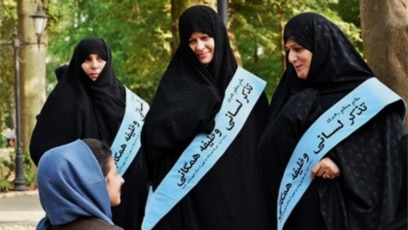
Hijab is very much in discussion these days. The controversy that started regarding wearing hijab for women remains in discussion in Iran more than in India. The issue of wearing the hijab in India is about its inclusion in the uniform, whereas in Iran, women are bent on removing the requirement of the hijab. Anger among women peaked after the death of 22-year-old Amini. Although this was not the case before. In Iran, which once lived in an atmosphere of openness like Western countries, everything changed after 1979. Since the Islamic Revolution, Ayatollah Khomeini took power in the country and implemented Sharia law. Apart from Iran, the hijab is mandatory only in Taliban-ruled Afghanistan. In contrast, 55 other Muslim-majority countries in the world do not have such rules. In Iran, after the age of 9, every woman is required to wear a hijab. There is also a separate police system to follow these rules.
The land of Iran is currently in discussion all over the world regarding the opposition to the hijab. The women here have started a unique social media campaign against wearing hijab. In the No to Hijab campaign, women are posting pictures without a hijab on social media. Along with this, she is releasing pictures and videos on social media while burning her hijab and cutting her hair.
Iran changed after the Islamic revolution
Iran was not like this before. The people of Iran previously had the same openness as in the West, but the 1979 Islamic Revolution changed everything. Religious leader Ayatollah Khomeini took power by ousting Shah Mohammad Reza Pahlavi and imposed Sharia law in Iran. Although it is another matter that out of 195 countries in the world, 57 are Muslim majority. Of these, Sharia law is strictly followed in 8. Whereas there are only two countries where women are required to wear hijab when leaving home. Apart from Iran, these countries also include Afghanistan. Afghanistan is currently ruled by the Taliban.
Wearing Hijab is mandatory after 9 years
The rules regarding the compulsory hijab in Iran are so strict that you will be shocked to hear. Here if the girl has crossed 9 years then it becomes necessary for her to wear a hijab. Women are required to wear hijab everywhere from leaving home to offices, restaurants, public places, and hospitals overall. There is also a separate policing system to get these rules to be followed, which only keeps an eye on the implementation of Sharia law. If anyone sees or comes to know of them not doing so, then they have full freedom to take strict action against them.
Punishment ranging from 74 whips to 16 years for breaking the rules
It is very expensive and painful for a woman in Iran to comply with the order to wear a hijab. There is a strict law regarding this here. Breaking the rules is punishable with 74 whipping and up to 16 years of imprisonment. Now guess that even after such strictness, more than 70 percent of women have come out in protest against wearing hijab in Iran at this time.
AIIMS Jodhpur Recruitment: Good news has come out for candidates seeking government jobs in the f
Dream Girl 2 Box Office Collection Day 14: The pace of Ayushmann Khurrana's film Dream Girl 2 has
Prime Minister Narendra Modi on Tuesday recalled this dark day of democracy on the 49th anniversa
An exciting match was played between India and Pakistan in the T20 World Cup 2024. The match betw
Rupee Vs Dollar: Can former RBI governor strengthen rupee against the dollar? Know who gave advice
The rupee continues to weaken against the dollar. The Indian rupee touched an all-time low agains
Joint Entrance Examination (Main) conducted by the National Testing Agency (NTA) for admission to
PM Modi US Visit Prime Minister Narendra Modi returned to India after his 5-day US and Egypt tour
Why are there layoffs in companies like FB, Apple, and Amazon, is the world in a recession?
Is there a recession in the world? Questions are being raised about how giant companies including
Sandeep Pathak, who played an important role in getting the Aam Aadmi Party the status of a natio
New Dhansu phone launched for just 10 thousand rupees, will get a 50MP camera and 13GB RAM
Amazon Deal On Smartphone: Another phone has been launched in the segment of 10 thousand, the Tec